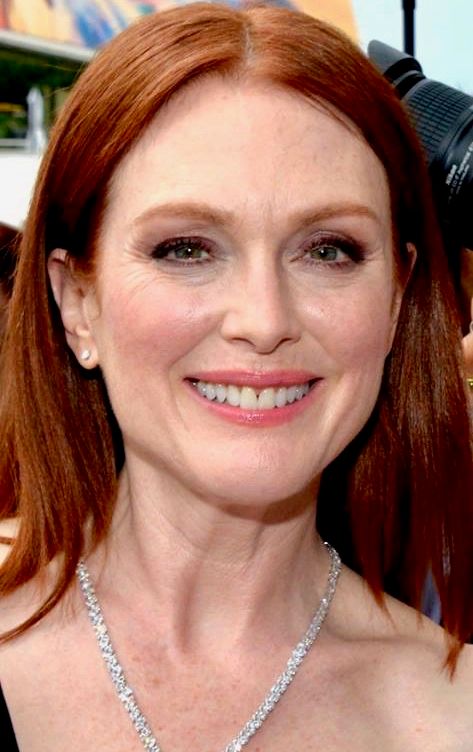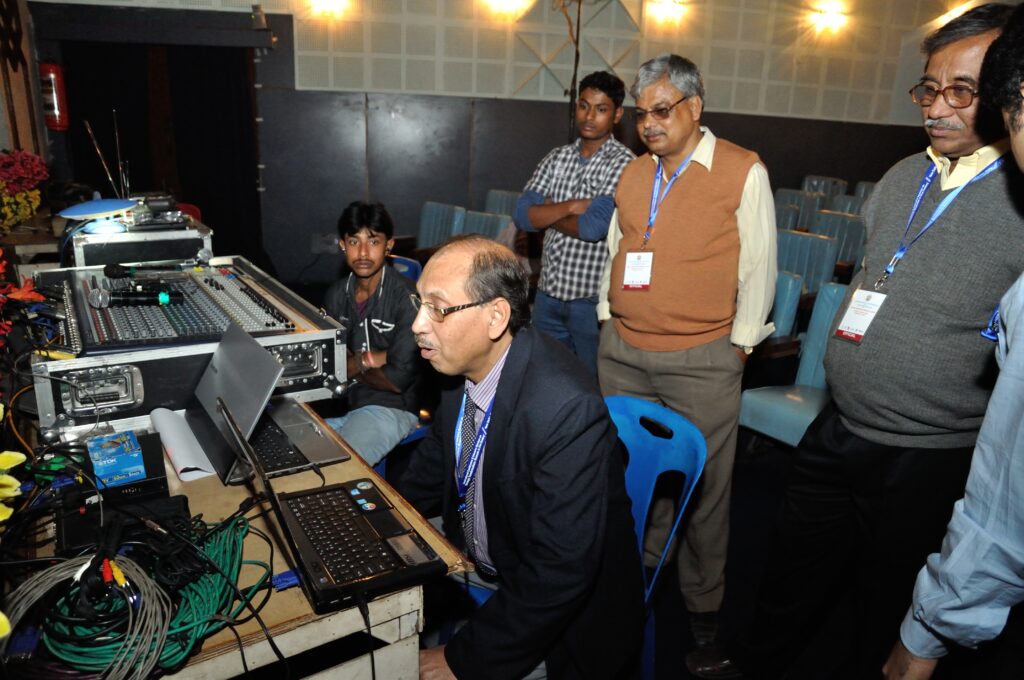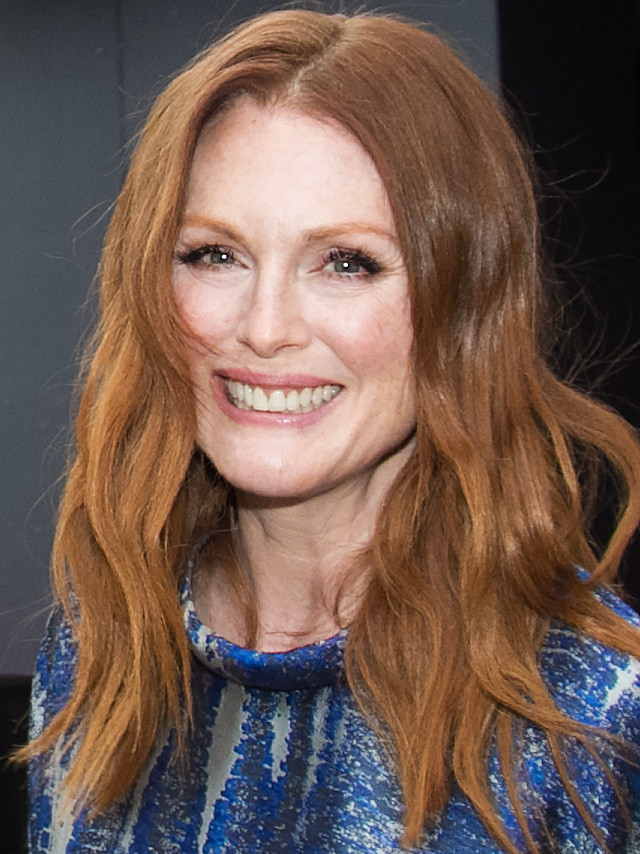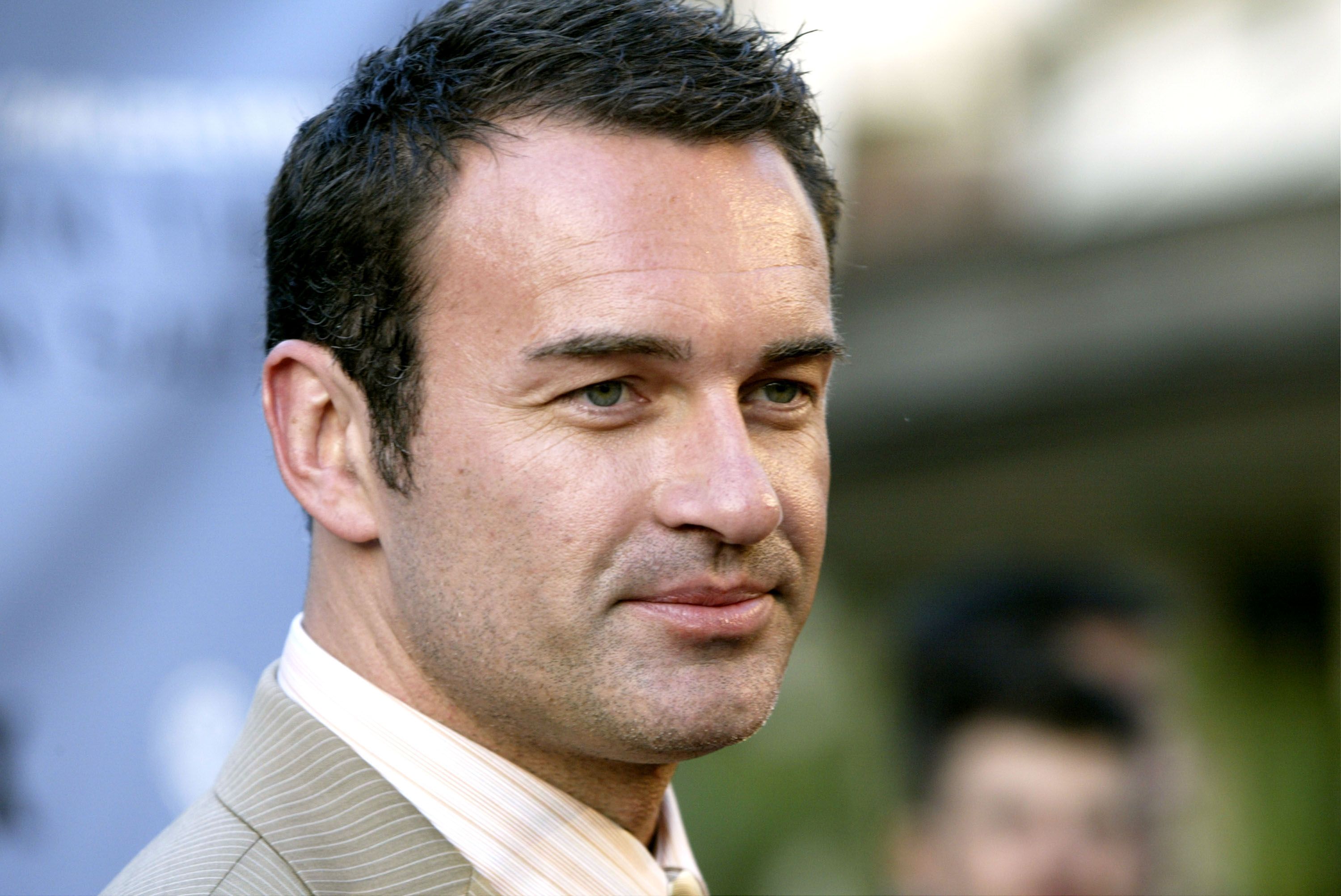
In the vibrant tapestry of Hollywood, few stars shine with the enduring brilliance and versatile depth of Julianne Moore. An actress celebrated for her captivating portrayals of “emotionally troubled and vulnerable women,” Moore has seamlessly navigated the realms of independent cinema and major blockbusters since the early 1990s, accumulating a breathtaking array of accolades. Her journey is a testament to dedication, talent, and an unwavering commitment to her craft, marking her as one of the most respected figures in modern entertainment.
From her early days on soap operas to her status as an Academy Award-winning legend, Moore’s career is a fascinating narrative of growth, challenge, and triumph. She stands as one of only two actresses to have claimed the Best Actress award at all three major European film festivals—Cannes, Berlin, and Venice—a remarkable feat that underscores her global artistic impact. Join us as we take a deep dive into the foundational moments and defining performances that have sculpted the extraordinary legacy of Julianne Moore, offering a closer look at the woman behind the iconic roles.
Her story is not just about the glittering awards or the box-office hits; it’s about a resilient spirit, a constant evolution, and a genuine passion for storytelling. We’ll explore the pivotal experiences that shaped her, the early roles that paved her way, and the critical acclaim that cemented her reputation as a generational talent, setting the stage for an unparalleled career marked by artistic integrity and powerful performances.
1. **A Childhood Forged in Motion: Early Life and Formative Experiences**Julianne Moore, born Julie Anne Smith on December 3, 1960, at Fort Bragg, North Carolina, experienced a childhood unlike many. Her father, Peter Moore Smith, was a paratrooper in the U.S. Army during the Vietnam War, eventually attaining the rank of colonel and becoming a military judge. Her mother, Anne, was a psychologist and social worker from Greenock, Scotland, who had migrated to the United States in 1951.
Due to her father’s occupation, Moore’s early years were characterized by constant relocation. The family moved frequently across the United States, living in numerous places including Alabama, Georgia, Texas, Panama, Nebraska, Alaska, New York, and Virginia. This itinerant lifestyle meant Moore attended nine different schools, a challenging experience that she admits made her an “insecure child” who struggled to establish lasting friendships.
Despite the difficulties, Moore has reflected positively on how these constant changes inadvertently prepared her for her future career. She remarked that moving around a lot taught her that “behavior is mutable,” explaining, “I would change, depending on where I was… It teaches you to watch, to reinvent, that character can change.” This early lesson in adaptation undoubtedly contributed to her remarkable versatility as an actress, enabling her to inhabit a vast array of characters with authenticity.
It was during these nomadic years, specifically when the family moved to Frankfurt, West Germany, at age 16, that Moore discovered her passion for acting. A self-proclaimed “good girl” who initially planned to become a doctor, she was an avid reader who began performing in school productions. With the encouragement of her English teacher, she decided to pursue a theatrical career, a decision fully supported by her parents, who insisted she train at a university for the security of a college degree. She would go on to graduate from Boston University College of Fine Arts with a Bachelor of Fine Arts in theater in 1983.

2. **From Julie Smith to Julianne Moore: The Genesis of a Star in Soap Operas**Upon graduating, Julie Anne Smith moved to Manhattan, New York, where she initially worked as a waitress. It was there that she faced a common challenge for aspiring actors: her birth name was already taken. She famously explained her decision to adopt her stage name: “There was already a Julie Smith, a Julie Anne Smith, there was everything. My father’s middle name is Moore; my mother’s name is Anne. So I just slammed the Anne onto the Julie. That way, I could use both of their names and not hurt anyone’s feelings. But it’s horrible to change your name. I’d been Julie Smith my whole life, and I didn’t want to change it.”
After registering her new stage name, Julianne Moore began her career off-Broadway in 1985. Her earliest screen role was an episode of “The Edge of Night” in 1984, but her true break came a year later when she joined the cast of the popular soap opera “As the World Turns.” This role proved to be a pivotal learning experience, as she took on the demanding dual roles of half-sisters Frannie and Sabrina Hughes.
The intensive work on the soap opera provided Moore with invaluable training and helped build her confidence. She credited the experience, stating, “I gained confidence and learned to take responsibility.” Her dedication and talent were recognized when she won a Daytime Emmy Award for Outstanding Ingenue in a Drama Series for her performance on the show in 1988, a significant early acknowledgment of her burgeoning talent before she transitioned to film.

3. **A Bold Breakthrough: Robert Altman’s “Short Cuts” (1993)**While Moore had appeared in supporting film roles and television movies throughout the late 1980s and early 1990s, it was her collaboration with revered filmmaker Robert Altman that marked her true breakthrough. Altman, having seen Moore in a workshop theatre production of Chekhov’s “Uncle Vanya,” was so impressed that he cast her in his ensemble drama “Short Cuts” (1993), based on short stories by Raymond Carver.
Working on “Short Cuts” was a challenging yet transformative experience for Moore. She described herself as a “total unknown” amidst a cast of established actors, an environment that pushed her to excel. The film itself was critically acclaimed, earning awards for Best Ensemble Cast at the Venice Film Festival and the Golden Globe Awards, showcasing Moore as a talent to watch.
Her performance as artist Marian Wyman in “Short Cuts” was singled out for particular attention. Critic Todd McCarthy called her portrayal “arresting” and famously remarked that her monologue, “delivered naked from the waist down,” would “no doubt be the most discussed scene” of the film. This scene brought Moore a degree of notoriety and cemented her ability to deliver powerful, uninhibited performances.
For her compelling work in “Short Cuts,” Moore received an individual nomination for Best Supporting Female at the Independent Spirit Awards. This role not only garnered her significant critical attention but also demonstrated her courage and depth as an actress, laying the groundwork for a career defined by fearless choices and complex characterizations.

4. **Establishing Herself: Becoming a Hollywood Leading Lady**Following the critical success of “Short Cuts,” Julianne Moore’s profile rapidly ascended, solidifying her status as a formidable presence in cinema. In 1994, the filmed version of her “Uncle Vanya” workshop production, “Vanya on 42nd Street,” was released, with Time Out praising her performance of Yelena as “simply outstanding,” earning her the Boston Society of Film Critics award for Best Actress. This led to her first leading role in Todd Haynes’ low-budget film “Safe” (1995), where she played an unhappy suburban housewife who develops multiple chemical sensitivity.
“Safe” proved to be another critical triumph for Moore, with British magazine Empire declaring that the film “first established [Moore’s] credentials as perhaps the finest actress of her generation.” David Thomson echoed this sentiment, calling it “one of the most arresting, original and accomplished films of the 1990s.” Moore’s commitment to the role, which included losing a substantial amount of weight, earned her an Independent Spirit Award nomination for Best Actress, further proving her range and dedication.
Crucially, her next appearance in the romantic comedy “Nine Months” (1995), co-starring Hugh Grant, played a significant part in establishing her as a Hollywood leading lady. Despite receiving poor reviews, the film was a box office success, becoming one of her highest-grossing films to date. This demonstrated her appeal to a wider commercial audience, balancing her critically acclaimed indie work with mainstream visibility.
Her commercial prominence continued with her role as paleontologist Dr. Sarah Harding in Steven Spielberg’s blockbuster sequel, “The Lost World: Jurassic Park” (1997). This physically demanding role, which Moore thoroughly enjoyed, involved “so much hanging everywhere” and non-stop action. “The Lost World” became one of the ten highest-grossing films in history at the time of its release, and as Moore herself noted, “Suddenly I had a commercial film career,” marking a significant turning point in her journey.
5. **The First Oscar Nod: Captivating Critics in “Boogie Nights” (1997)**The late 1990s brought Julianne Moore significant industry recognition, with her career reaching new heights. A pivotal moment came with her first Academy Award nomination for the critically acclaimed drama “Boogie Nights” (1997). Directed by the then-lesser-known Paul Thomas Anderson, Moore was captivated by his “exhilarating” script and agreed to join the ensemble cast.
In “Boogie Nights,” Moore delivered a powerful performance as Amber Waves, a leading porn actress and a maternal figure who desperately longed to reunite with her real son. Critics widely lauded her portrayal for its remarkable blend of confidence and vulnerability. Martyn Glanville of the BBC praised her effort, while Time Out called the performance “superb” and Janet Maslin of The New York Times found it “wonderful.”
The role resonated deeply with audiences and critics alike, earning Moore widespread accolades. Beyond her Academy Award nomination for Best Supporting Actress, she also received nominations from the Golden Globe and Screen Actors Guild awards. Numerous critics’ groups honored her with awards, cementing her status as a leading dramatic actress capable of tackling complex, challenging characters with nuance and empathy.

6. **Showcasing Versatility: From Cult Classics to Intense Dramas**Julianne Moore’s career trajectory continued to showcase her remarkable versatility, moving effortlessly between different genres and filmmakers. Her role as Maude Lebowski in the Coen brothers’ dark comedy “The Big Lebowski” (1998) stands as a testament to this adaptability. Though not an immediate hit upon its release, the film has since blossomed into a beloved cult classic, with Moore’s portrayal of the feminist artist adding a unique, memorable layer to its quirky universe.
Following this, Moore reunited with Paul Thomas Anderson for the acclaimed drama “Magnolia” (1999). In a demonstration of his profound admiration for her talent, Anderson specifically wrote a role for Moore, aiming to “see her explode” on screen. She was cast as a morphine-addicted wife, a character she described as particularly difficult to inhabit, yet her performance earned her a Screen Actors Guild nomination, highlighting her willingness to embrace challenging and intense roles.
That same year, Moore also starred in “An Ideal Husband,” Oliver Parker’s adaptation of Oscar Wilde’s play, which earned her a Golden Globe nomination for Best Actress in a Musical or Comedy. She also received another Golden Globe nomination in the drama category for her work in “The End of the Affair” (1999), where she played an adulterous wife opposite Ralph Fiennes. Michael Sragow lauded her performance, calling it “the critical element that makes [the film] necessary viewing.”
Her contributions to these diverse films solidified her reputation as an actress who could elevate any project, whether it was a quirky comedy destined for cult status or a profound drama that required immense emotional depth. The National Board of Review recognized her breadth of work, naming her Best Supporting Actress of 1999 for her performances in “Magnolia,” “An Ideal Husband,” and “A Map of the World.”

7. **The Unprecedented Year: Double Oscar Nominations (2002)**The year 2002 marked an extraordinary high point in Julianne Moore’s illustrious career, as she achieved the rare distinction of becoming the ninth performer to be nominated for two Academy Awards in the same year. This remarkable accomplishment underscored her unparalleled dramatic prowess and her ability to deliver two distinct, powerfully resonant performances simultaneously. Her first nomination was for Best Actress in the melodrama “Far from Heaven.”
In “Far from Heaven,” Moore delivered a tour-de-force performance as a 1950s housewife whose idyllic world shatters upon discovering her husband is gay. The role was specifically written for her by Todd Haynes, marking their first collaboration since “Safe,” and Moore described it as “a very, very personal project… such an incredible honor to do.” Critics were effusive in their praise, with David Rooney of Variety lauding her “beautifully gauged performance” of a desperate woman “buckling under social pressures and putting on a brave face.”
Manohla Dargis of the Los Angeles Times went even further, writing, “what Moore does with her role is so beyond the parameters of what we call great acting that it nearly defies categorization.” Her portrayal in “Far from Heaven” earned her the Best Actress award from an astounding 19 different organizations, including the Venice Film Festival and the National Board of Review, cementing it as one of the most celebrated performances of her career.
Moore’s second Oscar nomination that year came for Best Supporting Actress in “The Hours,” where she co-starred with Nicole Kidman and Meryl Streep. She again played a troubled 1950s housewife, a coincidence she called “unfortunate” but clarified that the characters possessed differing personalities. Peter Travers of Rolling Stone found her performance “wrenching,” while Peter Bradshaw of The Guardian praised a “superbly controlled, humane performance.” “The Hours” received nine Academy Award nominations, and Moore, along with Kidman and Streep, was jointly awarded the Silver Bear for Best Actress at the Berlin International Film Festival, solidifying her status as an actress of immense talent and international renown.

8. **Navigating Diverse Genres: From Thrillers to Dystopian Futures (2003-2006)**After her landmark double Oscar nominations, Julianne Moore returned in 2004 with diverse films. While early ventures like “Marie and Bruce” and “Laws of Attraction” had limited acclaim, Moore consistently chose challenging roles, demonstrating her adaptability. Her commercial appeal shone through with “The Forgotten,” a psychological thriller which debuted as the U.S. box office number one despite mixed reviews. This proved her ability to balance artistic depth with commercial success.
In 2005, she collaborated with husband Bart Freundlich on the comedy “Trust the Man” and explored a true story in “The Prize Winner of Defiance, Ohio.” These roles reaffirmed her commitment to character-driven narratives. A significant triumph arrived in 2006 with Alfonso Cuarón’s dystopian drama “Children of Men,” where Moore had a powerful supporting role as an activist leader in a critically acclaimed film, showcasing her capacity to anchor narratives with gravitas.
9. **Braving the Stage and Unconventional Roles (2006-2007)**Julianne Moore continuously seeks to expand her artistic horizons. In November 2006, she made her highly anticipated Broadway debut in David Hare’s “The Vertical Hour.” Moore took on the complex role of Nadia, a former war correspondent, showcasing her commitment to exploring all performance facets beyond film.
However, the transition to live theater proved challenging, with critics noting a “lack of stage technique.” Moore herself admitted finding the experience difficult, yet expressed gratitude for having “experimented with it,” highlighting her fearless artistic risks, even when met with mixed results. This willingness to step outside her comfort zone is a hallmark of her career.
Her cinematic endeavors during this period remained diverse. In 2007, she co-starred with Nicolas Cage in the sci-fi action film “Next,” a film she later identified as her “worst.” Following this, Moore embraced a profoundly unsettling role in “Savage Grace” (2007), a true story detailing an Oedipal relationship that ended in murder. Moore was “fascinated” by the role, solidifying her reputation as an actress unafraid to tackle dark, complex human psychologies.
10. **A Resurgence in Acclaimed Dramas and Comedies (2008-2010)**The late 2000s saw Julianne Moore embracing challenging projects, solidifying her depth. In 2007, she collaborated with Todd Haynes on “I’m Not There.” In 2008, she starred in “Blindness,” before a significant return in late 2009 with three new releases, including “Chloe.”
A particularly well-received drama was “A Single Man,” starring Colin Firth, where Moore played his best friend—a character crafted specifically for her by Tom Ford. Leslie Felperin of Variety hailed it as Moore’s best role in “some time,” praising her “extraordinary emotional nuance.” The film earned her a fifth Golden Globe nomination, marking a significant resurgence in critical adoration for her dramatic work.
Beyond film, Moore made a delightful return to television after an 18-year absence, appearing in five episodes of “30 Rock” as Nancy Donovan, a love interest for Alec Baldwin’s character. This guest role showcased her sharp comedic timing and impressive range.
The new decade kicked off with “The Kids Are All Right” (2010), a critical success earning an Oscar nomination. Moore starred with Annette Bening as Jules Allgood, a lesbian couple’s teenage children’s sperm donor. The role, written for her, allowed her to connect deeply with the film’s “universal” depiction of married life. Critics universally praised Moore’s authentic portrayal, earning her a sixth Golden Globe and second BAFTA nomination for Best Actress.

11. **Television Triumphs and Embracing Challenges (2010-2013)**Building on recent successes, Julianne Moore actively sought more comedic roles, leading to “Crazy, Stupid, Love” (2011). She played Steve Carell’s estranged wife, showcasing her knack for nuanced comedic timing in a commercially successful film.
However, her next performance in March 2012 brought unparalleled critical praise: the HBO film “Game Change.” Moore starred as Sarah Palin, a considerable challenge. She meticulously prepared, immersing herself in research and dialect coaching to authenticate her portrayal, acknowledging the immense difficulty of representing someone “so very well-known and idiosyncratic.” The effort was spectacularly rewarded, earning her a Golden Globe, a Primetime Emmy, and a Screen Actors Guild Award—firmly establishing her as a force on the small screen.
Moore continued her prolific output with two more films in 2012. She supported Robert De Niro in “Being Flynn” and starred in “What Maisie Knew,” a critically praised drama. Moore’s portrayal of Susanna, Maisie’s rock-star mother, even required her to sing on camera, a challenge she bravely embraced despite initial embarrassment.
In 2013, she appeared in Joseph Gordon-Levitt’s comedy “Don Jon.” Though “The English Teacher” was less successful, Moore concluded the year portraying the demented Margaret White in “Carrie.”

12. **The Apex of Accolades: From Cannes to an Oscar (2014)**The year 2014 was extraordinary for Julianne Moore, marked by critical acclaim and commercial success. She started with the action-thriller “Non-Stop,” a global box office hit. Her fearless performance as Havana Segrand in David Cronenberg’s black comedy “Maps to the Stars” captivated the art-house world. Moore’s portrayal, drawing from early industry experiences, earned her the Best Actress award at the Cannes Film Festival, making her only the second actress to win at all three “Big Three” festivals. A Golden Globe nomination further recognized this monumental feat.
Moore also joined a major franchise, playing President Alma Coin in “The Hunger Games: Mockingjay – Part 1,” her highest-grossing film to date. Yet, the crowning jewel was “Still Alice.” Moore delivered a career-defining performance as a linguistics professor diagnosed with early-onset Alzheimer’s. Her immense dedication, including four months of training, brought profound authenticity. Critics hailed it as her finest performance. For this deeply moving portrayal, Julianne Moore received the Golden Globe, SAG, BAFTA, and, most triumphantly, the Academy Award for Best Actress—a well-deserved culmination of decades of exceptional work.
13. **Balancing Blockbusters and Independent Gems (2015-2017)**Following her Oscar win, Julianne Moore maintained an impressive balance between blockbusters and acclaimed independent films. She began 2015 with “Seventh Son,” then returned with “Freeheld,” a drama about a detective fighting for her same-sex partner’s rights, and the romantic comedy “Maggie’s Plan.” In “Maggie’s Plan,” she delighted critics with her comedic turn as a pretentious Danish professor, deemed the film’s “chief pleasure.”
Later that year, Moore reprised her role as President Alma Coin in “The Hunger Games: Mockingjay – Part 2,” underscoring her versatility in transitioning between intense character studies and major cinematic events.
After a brief absence, Moore returned in 2017 with three distinct films. She re-teamed with Todd Haynes for “Wonderstruck,” taking on dual roles. She again embraced a dual role in “Suburbicon,” a satirical thriller. While the film received negative reviews, critics praised Moore’s “perfectly judged comic performance.” Moore’s final 2017 release was the spy sequel, “Kingsman: The Golden Circle.” She played the villainous entrepreneur Poppy Adams, portraying her to seem “strange, but reasonable” in the “outlandish” film, which grossed over $410 million worldwide. This period affirmed her enduring ability to blend artistic integrity with commercial appeal.

14. **Independent Spirit, Streaming, and Sustained Acclaim (2018-Present)**The late 2010s and 2020s saw Julianne Moore consistently choosing compelling independent films and expanding into streaming. In 2018, she starred in Sebastián Lelio’s “Gloria Bell,” earning praise for her “utterly natural and quietly spellbinding star performance” and recognition as one of The New York Times’ “10 best actors of the year.” Her second film, “Bel Canto,” saw her portraying an opera singer. In 2019, she reunited with her husband for “After the Wedding” and starred in Luca Guadagnino’s short film “The Staggering Girl.”
The 2020s strengthened Moore’s presence. In 2020, she embodied Gloria Steinem in “The Glorias.” She ventured into miniseries with Apple TV+’s “Lisey’s Story.” In 2022, Moore led Jesse Eisenberg’s “When You Finish Saving the World,” empathetically portraying an unlikable mother, and served as jury president of the 79th Venice International Film Festival.
Her recent work continues to impress. She starred in and produced “Sharper” (202 A.D.) for Apple TV+. Then, in another acclaimed collaboration with Todd Haynes, she starred in “May December,” playing a “unbelievably complicated and compelling” character, earning a Golden Globe nomination. Looking ahead, 2024 saw Moore as Mary Villiers in “Mary & George,” and with Tilda Swinton in “The Room Next Door,” Pedro Almodóvar’s first English-language feature. Beyond acting, Moore is a successful author of the “Freckleface Strawberry” children’s book series, and her profound influence was recognized by Time and The New York Times. Julianne Moore’s career is a dynamic testament to artistic courage and an unwavering commitment to bringing complex, deeply human stories to life.
As we reflect on Julianne Moore’s incredible journey—from her early relocations and soap opera days, through fearless roles, to her Oscar win and authorship—one truth becomes abundantly clear. Her career is more than accolades; it’s a masterclass in resilience, emotional exploration, and unwavering authenticity. She consistently pushes boundaries, portraying diverse characters with deep understanding and empathy. Julianne Moore doesn’t just act; she inhabits, she transforms, reminding us of storytelling’s profound power. Her legacy is etched in film history and in the hearts of audiences captivated by her unique brilliance and boundless artistry.








